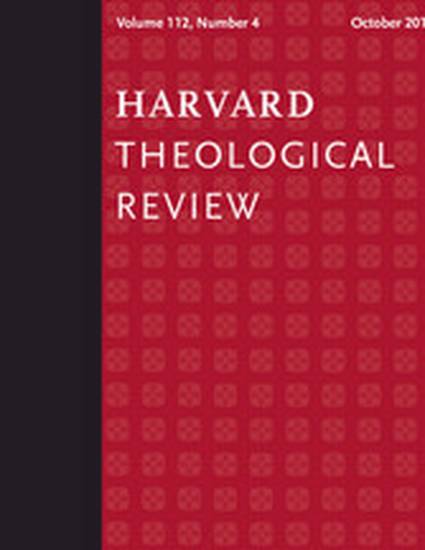
Article
Samuel Hirsch, Hegel, and the Legacy of Ethical Monotheism
Harvard Theological Review
(2020)
Abstract
This essay examines Samuel Hirsch’s Religious Philosophy of the Jews as a forerunner of twentieth-century works of ethical monotheism in modern Jewish thought. In particular, it explores Hirsch’s use of the dichotomy between monotheism and idolatry as a way to resist Hegel’s attempts to incorporate Judaism into his developmental history of religion. Hirsch frames his opposition to the Hegelian account of religion by means of providing a rival interpretation of Genesis 3 to that offered by Hegel in the Lectures on the Philosophy of Religion. After juxtaposing Hegel’s and Hirsch’s respective interpretations of Genesis 3, I explore Hirsch’s account of religion, which, unlike Hegel’s, is presented in terms of the dichotomy of true and false religion. Finally, I will briefly highlight how Hirsch’s basic strategy for understanding Judaism vis-à-vis other religions—namely, casting the dichotomy between monotheism and idolatry in starkly ethical terms—is taken up and utilized by Hermann Cohen and Emmanuel Levinas in the twentieth century.
Keywords
- Ethical Monotheism,
- Samuel Hirsch,
- Jewish Religious Philosophy,
- Hermann Cohen,
- Emmanuel Levinas
Disciplines
Publication Date
Winter January, 2020
DOI
https://doi.org/10.1017/S0017816019000361
Publisher Statement
The Harvard Theological Review is published by Cambridge University Press. For more information about this journal, please visit Cambridge Core online.
Citation Information
Robert Erlewine. "Samuel Hirsch, Hegel, and the Legacy of Ethical Monotheism" Harvard Theological Review Vol. 113 Iss. 1 (2020) p. 89 - 110 ISSN: 0017-8160 Available at: http://works.bepress.com/robert_erlewine/18/
